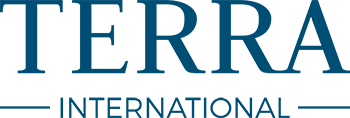01 Jan Can You Buy a House With No Money Down?
A zero-down mortgage can free up funds for your home search.
When you’re thinking of buying a home, it’s easy to get tripped up by the very first hurdle: Saving for a down payment. Ideally, everyone would be able to offer a 20 percent down payment to get a mortgage on their dream home. But when 20 percent of a modest home can easily be $30,000 to $50,000, what’s ideal often isn’t possible. The solution? A zero-down mortgage.
What is a zero-down mortgage?
A zero-down mortgage is a loan that covers the entire purchase price of the home. If the property you want is $200,000, the zero-down mortgage would finance the full $200,000. Compare this to a conventional mortgage, which generally requires a down payment between 5 and 20 percent of a home’s selling price. In the case of a conventional mortgage with a 20 percent down payment on a $200,000 home, your loan would be for $160,000, and you’d pay the remaining $40,000 as your down payment.
Where can I find a zero-down mortgage?
Though zero-down mortgages sound very attractive to potential homebuyers—especially those eager to buy a house while also paying down other debt—they can be difficult to find. Most banks and private lenders do not offer zero-down mortgages. However, there are two options for zero-down mortgages: A VA Home Loan from the U.S. Department of Veterans Affairs, and a USDA loan from the U.S. Department of Agriculture.
- VA Home Loans don’t require private mortgage insurance and have low closing costs, in addition to not requiring a down payment. To qualify, you’ll need a Certificate of Eligibility from the VA, have a good credit score, and meet the requirements for income. This loan isn’t completely free, though: You could pay a 1 percent loan origination fee and costs relating to the purchase (such as appraisal and inspection fees).
- USDA loans offer low interest rates for low- to moderate-income potential homebuyers with good credit looking to buy a home in designated rural areas. The two most popular USDA loans are Single Family Direct Home Loans (designed for low- to very-low income applicants) and Single Family Guaranteed Home Loans (designed for low- to moderate-income applicants). USDA loan income eligibility is determined by the area in which the home is located, and can vary by region.
Can I buy any home with a zero-down mortgage?
The eligibility of your dream home depends on the program. For VA Loans, the main requirement for the property is that the selling price isn’t higher than the appraisal price. States also may have their own requirements for the type of property you can purchase with a VA Loan.
USDA loans have to be used on homes that are in eligible rural areas as defined by the USDA. There are also specific property requirements for both programs. For USDA Single Family Direct Home Loans, the property generally has to be 2,000 square feet or less, can’t have an in-ground swimming pool, and can’t be designed for income-producing activities. USDA Single Family Guaranteed Home Loans have few requirements other than the property existing in an eligible area, and the home has to be occupied by the applicant as their primary residence.
Are there any downsides to a zero-down mortgage?
Though you can save money with a zero-down mortgage, some elements of your mortgage may cost you more. For VA Loans, your interest rate may be higher than a conventional loan. For USDA loans, private mortgage insurance may be required, which is a monthly payment that generally shakes out to between 0.5 and 1 percent of the loan. And if you have bad credit, unfortunately, you likely won’t qualify.

